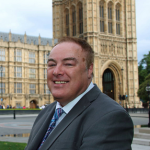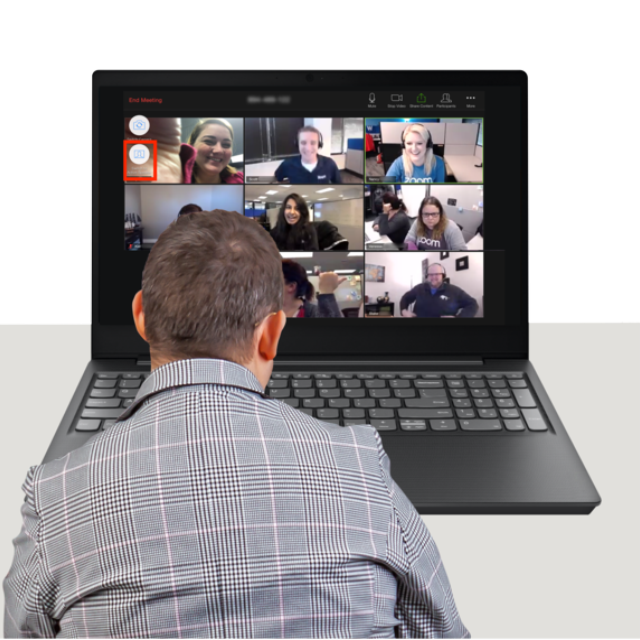#SolveSleepIns February Update
In November we sent out a survey asking about sleep-in payments and how changes are affecting our members. Disabled people, family members and Personal Assistants/support workers responded.
Some people said their local authority would be reducing their sleep-in rate soon and had contacted them about it. This means that some people will be paid less than the national minimum wage for sleep in work.
Members in Lancashire have told us that their local authority has said their rate will change from the beginning of April from £ 94.20 /night to £47.43/night. Although this change will be phased in over 6 months it will result in staff being paid around half of what they had originally been paid.
Other people said their local authority hadn’t made any changes to their rate of pay, but they were very worried that they might in future.
Most people we spoke to were ‘very concerned’ about the about the legal implications of sleep-ins. Everyone we spoke to wanted to pay their staff the minimum wage for sleep-ins. People wanted to be a good employer and were worried about being breaking employment laws and rights as well as possibly having to pay back pay. People were concerned about how this would affect both personal budget holders, staff and smaller providers.
People were very concerned that changes to the rate of sleep in pay would have a negative impact on lots of people.
People are worried about:
- Not having a big enough personal budget to pay for support they need
- Losing good staff who had supported them for a long time
- Staff not feeling valued or appreciated
- Concerns about funding redundancies and back pay
- Not being able to recruit more staff
A self-advocate said:
“We would like a lot more Person Assistants & Staff back in Northamptonshire & The East Midlands with a lot more hours for me & Disabled People”
A family member said:
“We have very good staff retention and I try to be a good employer. There is a lot of liability stacked up and any claim would be time consuming and expensive.”
A Support Worker told us:
“As a support worker I feel I may be driven out of the care sector due to low income and if this happens across the whole sector the people we care about will not get the level of support and respect they deserve.”
We asked about where people are getting their information and support from about sleep ins. They got information from lots of different places including, other disabled people and families, providers, local authorities, social media and the news.
People thought that guidance and information weren’t very clear and sometimes was different depending on where it was from. They also found it difficult to find any easy read information.
Learning Disability England is part of the #SolveSleepIns Alliance. The Alliance has been campaigning to bring more attention to the issue of sleep ins and prompt a response from the government in,
- Clarifying its policy position on sleep ins
- Confirming employers won’t face unfair potential HMRC enforcement
- Communicating and working with everyone to make sure they understand how ‘sleep-in’ overnight care should be paid for and where any genuinely new money required for this will come from.
- Working with providers and local government on a sustainable funding solution for overnight care that will ensure care workers are valued and fairly paid.
Our last update included a letter to and response from MP Kelly Tolhurst. The letter recognised the current situation around sleep-ins as an issue. A key message being that the Department of Health and Social Care is telling local authorities and commissioners they should not be using the Court of Appeals judgement as a chance to radically change their fee-paying practices.
You can read the last update here.
The survey is still open if you would like to share your experiences or opinions.
Click here
Including everyone session – Thursday 15th November
Next week Learning Disability England members and some of the team will be part of running a session at the Social Care Futures event.
Social Care futures is a get together organised by volunteers and supported by a lot of different people with the aim of sharing what is most important and possible for social care in the future
We are working with the Alzheimers Society and Dimensions to share examples of how people are being supported to live a good life even though often the service system sees them as having complex needs.
Through the session, we want to share what is working but also work out what it will take for those kinds of support to be available to more people
Tim and Andrew are part of the session sharing what they have been involved in with New Prospects in Whitley Bay.
Building Community, not fighting for inclusion?
Tim and Andrew will share New Prospects work in Whitley Bay on being part of local community groups and working in partnership with people and groups
Some of what they will talk about was in this paper
Everyone in – what this session is about?
The session will share practical examples of how people traditionally viewed as having complex support needs are being supported in a variety of different settings to maintain or build relationships, activities or work with a focus on a good life not only their support or care needs.
About Tim & Andrew
Tim Keilty
With a background in the advocacy movement and training and consultancy, Tim now works for a support provider in the North East – New Prospects Association. He has learned that; telling people what to do on behalf of someone as an advocate, teaching people what to do as a trainer and advising people as a consultant are all easier than actually doing it…
Andrew Strachan
Andrew is an award-winning volunteer and community activist. Well known, well respected and well connected. Andrew is nosey, helpful, genuine and friendly; his brain hosts a web of names, stories and connections – the key traits of a community builder.
A life, not a service?
Jennie and Sarah will talk about Local Area Coordination in York.
Jennie Cox and Sarah Charlton are Local Area Coordinators in York. The LAC programme has been running for 18 months in York and has already seen some great impact on people’s lives and futures, including those labelled as having complex needs.
We are place-based, strengths-based practitioners offering person-centred, flexible, support to individuals and families in defined geographical areas. Our roles involve community capacity building to promote greater social inclusion for all. Our roles are also integral to system change in coproduction with several other innovative programmes in York, such as our Future Focus adult social care transformation programme, our Social Prescribing service and the Multiple Complex Needs Network. We are social innovators, expert generalists and specialists in thinking outside the box.
Our response to the consultation on mandatory training by Department Health and Social Care
Learning Disability England has responded to the government consultation
LDE has written a response too based on what self advocates, family members and people who work in organisations have told us.
The main points are:
We think all staff should receive face-to-face training which has been designed and delivered primarily by people with learning disabilities and/or autism.
We think people with learning disabilities should be employed to design, deliver and evaluate the training. This means they should be paid the living wage and have a proper contract. They should be paid the same amount as any non-disabled co-trainers.
There are many programmes that already work using this model and it should be considered best practice, informing and providing the basis for the mandatory training.
You can see our full response here – LDE Mandatory Training Response
Creating Connections: tackling isolation and loneliness through partnership
About this event
Watch to find out how 24 user-led groups have been working together to keep people connected during the pandemic.
People with learning disabilities, autism and sight loss often face barriers to being included in both the real and digital world. For many the pandemic had made this worse, leading to feelings of isolation, anxiety, and mental health challenges.
The Creating Connections Programme, designed as a six month pilot, was launched in September 2020 to support people with learning disabilities to grow digital skills and confidence to help them keep connected.
Working in partnership with Leaning Disability England and 24 locally-based peer-led groups has enabled us to build on local knowledge, experience and networks.
In this webinar, they discuss the findings of the network, highlight good practice, and discuss insights for further development of the programme. They look at:
• The Creating Connections network and how 24 locally-based peer led groups have collaborated
• Impact and outcomes
• Ambitions, horizon scanning, and plans for the future
Speakers include Veronica Mulenga from SeeAbility and Sarah Wheatley, Tania Woodhouse and Janet Allen from Connect in the North
This webinar was aimed at support providers and user-led groups but was open to all Learning Disability England Members. You can become a member for as little as £12 a year, click here to find out more.
Self advocacy and families supporting each other – Hate crime session
About this Event
We started these sessions during the first lockdown to help self-advocacy and family organisations connect and work together. We were all facing new challenges and were unsure what was the best thing to do to help people keep safe and still stay connected or not become more isolated.
These sessions are a chance to find new ways of working as the pandemic continues but to also share and connect more generally.
The sessions will be open to everyone who has been part of this work since March plus any other member of Learning Disability England who wants to join in and take part. They are aimed at members who support self advocacy or community groups that include people with learning disabilities.
If would like to join LDE’s membership, you can get more information here.
Please join us if you can or email us if you want to connect but cannot make this date. We hold these sessions every 2 weeks 🙂



